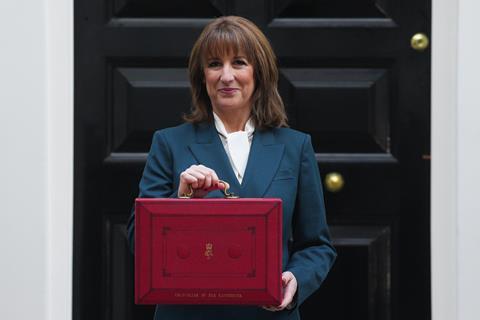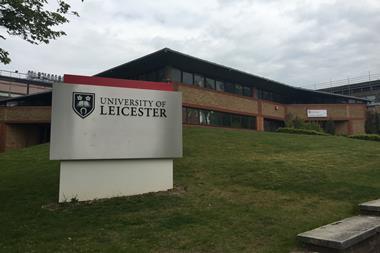With most of the government’s commitments to research announced already, the autumn budget contained little new on this front, but it did announce several decisions that will affect higher education. Most controversial is a levy on fees from international students that will go towards maintenance grants for disadvantaged students studying eligible courses.

Universities will have to pay £925 per international student per year starting in August 2028 if its intake passes 220 overseas students a year. This represents a 4.9% levy on the average annual fee of £19,000 for an international student; the government had originally proposed a 6% levy. Government models estimate the levy will generate £445 million in its first year.
New maintenance grants, which will be in addition to maintenance loans, will start in the 2028–2029 academic year. For first- and second-year students, a sliding scale of means-tested grants will provide maximum support of £1000 a year for the most disadvantaged. However, students will only be eligible if they study certain – as yet unconfirmed – subjects that support the government’s industrial strategy. These will probably include Stem subjects.
UK Research and Innovation (UKRI) investment in block grant quality-related research funding, as well as the Higher Education Innovation Funding, will be protected in real terms until 2030 – a cumulative increase of over £425 million. The budget also confirmed tuition fee caps for the next two academic years will rise in line with inflation. It means English universities can charge up to £9790 next academic year and more than £10,000 for the first time in 2027–28.
The government had earlier confirmed in October that UKRI will receive a ‘record’ £38.6 billion for 2026–2030. Of this, £14 billion is for curiosity-driven research, £9 billion for specific high-performing fields such as quantum technology and engineering biology, £8 billion for government priorities such as climate resilience and £7 billion to support innovative companies. Funding for the Metascience Unit – which supports research into increasing the impact and efficiency of science investment – will treble to £49 million. The Advance Research and Invention Agency will see its funding rise from £220 million per year to £400 million by 2029–2030. All these investments come from the £86 billion for public R&D confirmed in the spending review in June.
‘Announcements earlier this week on R&D funding showed welcome acknowledgement of research-intensive universities as drivers of growth and public services,’ said Tim Bradshaw, chief executive of the Russell Group. ‘Despite this and the positive decision to uplift tuition fee caps, many financial challenges remain. The international student levy will have a significant impact on universities’ ability to invest in teaching, research and communities, but a flat rate fee should avoid the complexities of a percentage-based model.’
The international student levy has raised widespread concerns. The Campaign for Science and Engineering (CaSE) argues that at a time when many universities are already under financial pressure, its impacts will be ‘unpredictable’ and could be ‘damaging’.
‘The government often speaks of the value and importance of UK research and universities’ role in it, albeit not in the chancellor’s speech,’ says Alicia Greated, CaSE’s executive director. ‘It is hard to reconcile this positive rhetoric with the international student levy. I urge them to engage with the sector on the impact this measure will have on the research system.’
While welcoming the reintroduction of maintenance grants, Malcolm Press, president of Universities UK, points out that the international student recruitment market is competitive and fees in the UK are already high. ‘[With the] levy, universities now face the prospect of either reducing cross-subsidies that support teaching and research, and/or raising international fees still further, which has the potential to drive down international numbers, ultimately limiting our ability to support UK students.’
From a chemistry perspective, the RSC predicts that the significant financial challenges faced by the university sector, which are translating into cuts to staff and courses, will become ‘more pressing’ thanks to the international student levy.












No comments yet